The ‘Audit of Geopolitical Capability 2019‘ reveals that, aside from China, the major Western democracies – not least the UK and US, as well as France, Germany and Japan – still hold a substantial lead over their emerging competitors.
Building on the ‘Audit of Geopolitical Capability’ from September 2017, the new study from the Henry Jackson Society provides an assessment of the geopolitical capabilities of twenty major countries, drawn from the G20, with the addition of Nigeria. The organisation say that as more countries have been added, the original framework and methodology have had to be refined, all the data can be found here.
The Henry Jackson Society say that this updated Audit reorders geopolitical capability – the ability to overcome the ‘tyranny of distance’ and influence physical space, including counterparts located within that space – into a framework with four central attributes: ‘national base’, ‘national Structure’, ‘national instruments’ and “national resolve’.
According to the author James Rogers, the audit is a deliberately comprehensive study that measures the geopolitical capabilities available to the world’s major powers. It differs from other ranking systems in several ways:
- It includes a broad spectrum of capabilities, across several areas of national capacity, from the capacity of each major power’s projection forces to the scale of its sporting prowess (it does not only measure “soft power”, or global presence, etc.);
- It is not necessarily a ranking of countries’ warfighting capacity, even assuming that the major powers – especially those armed with nuclear weapons – could engage and prevail in such conflict. Rather, the Audit assumes prevailing geopolitical circumstances, where the major powers compete for influence in the “grey zone” between “peace” and “war”.
- Unlike other ranking systems it seeks to avoid ‘double-counting’ by including indices that overlap by using the same base data.
The result, say the Henry Jackson Society, is a model involving four attributes, 33 indicators and 1240 potential data observations, which offers the most comprehensive picture of the major powers’ geopolitical capabilities.
What are the results?
The headlines results are similar to the 2017 Audit, the US remains ‘by some margin the world’s only superpower’: it maintains the largest national base, the most extensive national structure, and has access to overwhelming national instruments, not least awe-inspiring military might says the study.
The key difference is that China has leapfrogged France to become the world’s third strongest power.
The audit also shows that once again that the UK – though far behind the US – still enjoys a lead over China (albeit less than in 2017), despite having access to a far smaller national base.
“Indeed, in 2019, the UK remains second only to the US in terms of overall geopolitical capability, with a particularly strong performance in relation to diplomatic leverage and national resolve.”
Branding the UK “a truly global power”, the rankings find Britain retains its “unique capacity to project and extend itself around the world”.
The audit also claims that Britain’s fundamental capacities have faced no “discernible impact from Brexit”.
“Boosted by its overseas investment, aid and military, the study ranks the UK ahead of both China and Russia; despite the respective regimes’ expansionist foreign policies. The audit finds that UK retains a military might greater than that of China and technological prowess far in advance of Russia.”
However, it attributes much of the UK’s comparative power to its diplomatic, financial and cultural capabilities and links around the globe.
“Of the report’s nine key sub-categories, the UK is a top-five power in eight spheres. It is second in the world in five of those categories. Britain’s standing qualifies it as one of just three ‘global powers’, the second highest grading, according to the audit’s methodology. A ‘global power’ means that the UK is capable of projecting itself and defending its own interests anywhere on Earth. Russia meanwhile is a ‘regional’ power meaning it can only prosecute its objectives within its own regional surroundings.”
However, the study’s Chief Analyst, James Rogers, warns that this position may now be under serious threat from China. He warns that, by as soon as next year, China’s economic growth and naval investment could see it overtake the UK as a global power.
Just 0.4% separates the two nations after China added approximately 65,000 tonnes of large new warships to its fleet since 2016, comparable to around one fifth of the mass of the Royal Navy combat fleet.

The study identifies a particular weakness in China’s five-point lead over the UK in “technological prowess” warning that – in the absence of “urgent remedial action” to boost Research and Development spending – the UK risks falling dangerously behind, warns the audit.
- Superpower (80%-100%) – A country with a vast national base and enormous national structure, from which to generate overwhelming national instruments and resolve to project and extend itself and its interests – often comprehensively – around the world.
- Global Power (50%-79.9%) – A country with a large national base and/or structure, from which to generate extensive instruments and resolve to project and extend itself and its interests – sometimes selectively – around the world.
- Hemispheric Power (40%–49.9%) – A country with a significant national base and/or structure, from which to generate substantial instruments and resolve to defend itself and its interests, primarily within its own hemisphere.
- Regional Power (30%-39.9%) – A country with a moderate national base and/or structure, from which to develop modest instruments and resolve to defend itself and its interests, primarily within its own region.
- Local Power (below 30%) – A country with a lacking or unharnessed national base and/or structure, from which only weak or uneven instruments and resolve can be generated to try to defend itself and its interests, primarily within its own neighbouring areas.
The study advises that despite its smaller national base, the UK is the most ‘geopolitically-capable and well-rounded’ of the European major powers.

“It has a robust capability portfolio from which to draw in the years ahead, particularly as it navigates withdrawal from the EU. In terms of national instruments – in which it leads overall – it has the largest diplomatic leverage and second-biggest military might (after Russia).
It has the largest military budget in the EU, while the Royal Navy, in terms of total displacement of large warships and auxiliaries, is larger than the navies of France, Italy and Germany combined. However, despite its inherent strengths, the UK needs to concentrate on developing a robust strategy in the years ahead to cultivate and mobilise its overall capability.”

Other Western powers – France, Germany, Japan, Canada and Australia – score prominently, as the world’s fourth, fifth, sixth, seventh and eighth geopolitically most-capable countries, respectively. India – the world’s ninth leading power – has greater geopolitical capability than Russia, which in turn is only marginally ahead of industrious South Korea.
A closer look at the UK’s capabilities
The British Armed Forces comprise the Royal Navy, a blue-water navy with a comprehensive and advanced fleet; the Royal Marines, a highly specialised amphibious light infantry force; the British Army, the UK’s principal land warfare force; and the Royal Air Force, with a diverse operational fleet consisting of modern fixed-wing and rotary aircraft.
 The country is a major participant in NATO and other coalition operations and is also party to the Five Power Defence Arrangements.
The country is a major participant in NATO and other coalition operations and is also party to the Five Power Defence Arrangements.
Recent operations have included Afghanistan and Iraq, peacekeeping operations in the Balkans and Cyprus, intervention in Libya and again operations over Iraq and Syria. Overseas defence facilities are maintained at Ascension Island, Belize, Brunei, Canada, Diego Garcia, the Falkland Islands, Gibraltar, Kenya, Bahrain and Cyprus.
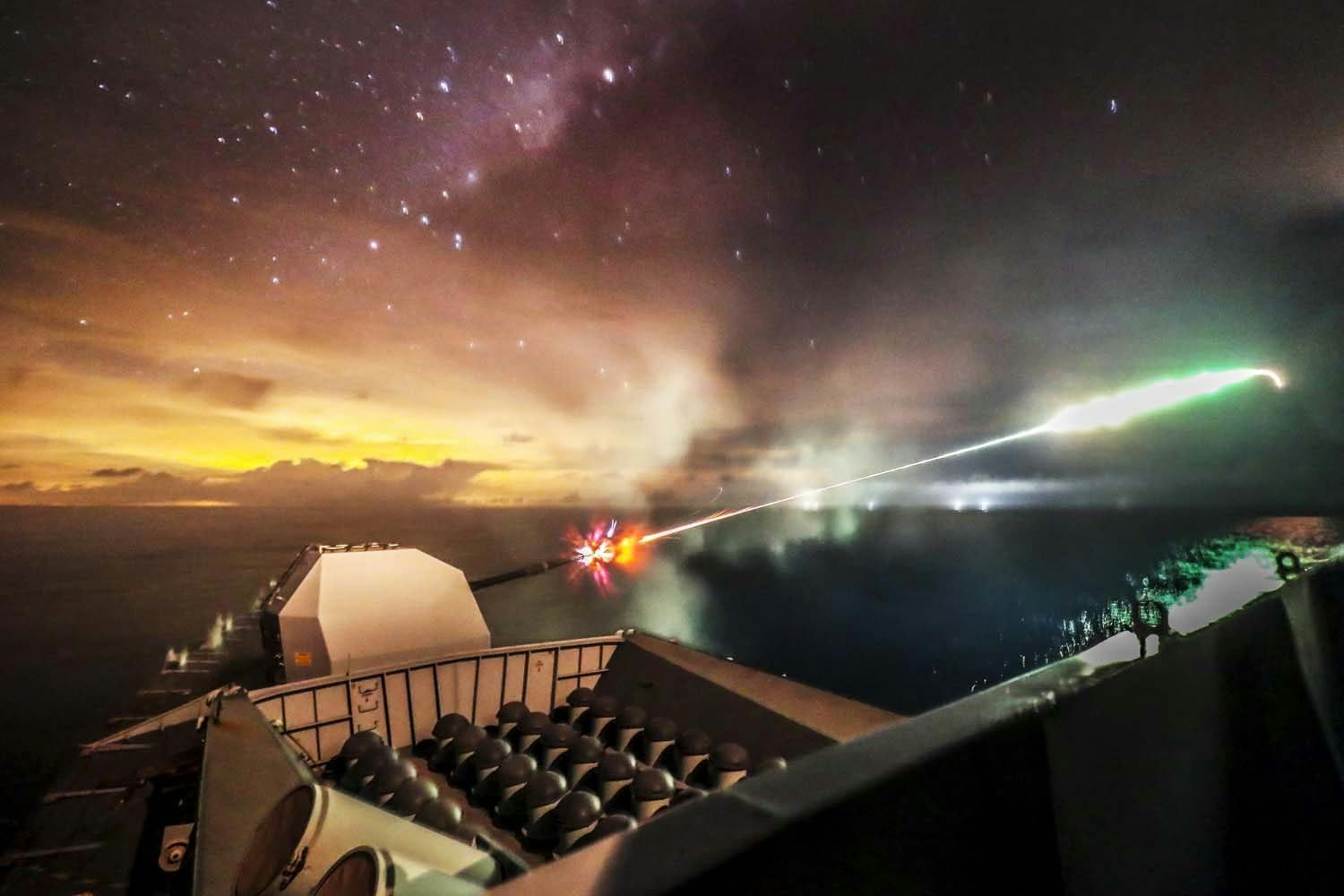 The UK still retains considerable economic, cultural, military, scientific and political influence internationally. It’s a recognised nuclear weapons state and its defence budget ranks fifth or sixth in the world. The country has been a permanent member of the United Nations Security Council since its inception.
The UK still retains considerable economic, cultural, military, scientific and political influence internationally. It’s a recognised nuclear weapons state and its defence budget ranks fifth or sixth in the world. The country has been a permanent member of the United Nations Security Council since its inception.
The British Armed Forces place significant importance in the ability to conduct expeditionary warfare. While the armed forces are expeditionary in nature, it maintains a core of “high readiness” forces trained and equipped to deploy at very short notice, these include; the Joint Expeditionary Force (Maritime) (Royal Navy), 3 Commando Brigade (Royal Marines), 16 Air Assault Brigade (British Army) and No. 83 Expeditionary Air Group (Royal Air Force).

Oftentimes, these will act in conjunction with a larger tri-service effort, such as the UK Joint Rapid Reaction Force, or along with like-minded allies under the UK Joint Expeditionary Force. Similarly, under the auspices of NATO, such expeditionary forces are designed to meet Britain’s obligations to the Allied Rapid Reaction Corps and other NATO operations.
In 2010, the governments of the United Kingdom and France signed the Lancaster House Treaties which committed both governments to the creation of a Franco-British Combined Joint Expeditionary Force. It is envisaged as a deployable joint force, for use in a wide range of crisis scenarios, up to and including high intensity combat operations. As a joint force it involves all three armed Services: a land component composed of formations at national brigade level, maritime and air components with their associated Headquarters, together with logistics and support functions.
What about Russia and China?
While you may have noticed their scores above, many will fail to and have only read the headline of this article. In 2017, we published an article regarding a previous report and were inundated with comments asking ‘What about Russia and China?’ as if the UK could only place so high with their omission (Seriously, have a look at the comments and tweets in response to this article being published)
“Since the last audit China has leapfrogged France in the ranking, and it has done so at the same time as its leadership has reaffirmed its commitment to being a one-party state. not yet a superpower alongside America, China’s trajectory is nevertheless clear, assuming growth is sustainable. Russia on the other hand, for all its military capability, languishes behind Canada and India.”
Well, I’ve decided to list their summaries below.
Russia – Although holding the largest national base and strongest military might – courtesy of the biggest defence budget in Europe and the world’s leading nuclear arsenal – Russia performs below the European average all other areas, apart from diplomatic leverage. Due to a lack of economic diversification, Russia’s economic clout – heavily dependent on the export of energy and raw materials – is smaller than that of Italy and only marginally better than that of Turkey, two countries with substantially smaller national bases. Meanwhile, it terms of cultural prestige and national resolve, Russia’s performance is dire, not least because the country’s authoritarian regime is corrupt, unruly and unresponsive. Without progressive political change, Russia is unlikely to reach the potential its national base could unleash.

China – With the world’s largest population and a national base second only to the uS, China has the potential not only to leave the uK trailing, but also to reach the top spot. However, China still has a long way to go: lacking in cultural prestige and national resolve – namely, the established freedoms needed to unleash and sustain a creative economy, combined with effective government – the country will be forced to confront an array of problems over the coming years if it wants to get its foot in the door of the superpower club.

Why does the UK place ahead of both Russia and China in military terms in this study?
The key in this matter is that while countries like China for example have a larger military than the United Kingdom, it does not have the logistical capability to deploy, support and sustain those forces overseas in large numbers.
As the report outlines, raw manpower is not a particularly useful indicator of military capability or power. Without access to overseas military bases, warships, logistics vessels and transport aircraft, and so on, it would be hard to move military personnel beyond their respective homelands, rendering them all but useless except for national defence.
Professor Malcolm Chalmers, director of UK Defence Policy Studies at the renowned Royal United Services Institute, says Britain would have a clear advantage in a straight fight at an equidistant location. This was described in a 2011 Briefing Paper:
“The UK will never again be a member of the select club of global superpowers. Indeed it has not been one for decades. But currently planned levels of defence spending should be enough for it to maintain its position as one of the world’s five second-rank military powers (with only the US in the first rank), as well as being (with France) one of NATO-Europe’s two leading military powers. Its edge – not least its qualitative edge – in relation to rising Asian powers seems set to erode, but will remain significant well into the 2020’s, and possibly beyond.”
According to Business Insider, Chalmers has since expanded on this:
“I think my 2011 comment remains valid. If you take individual elements of front line military capability – air, sea, land — the UK armed forces continue to outmatch those of China in qualitative terms by some margin. The UK also has greater capabilities for getting the most out of these forces, through key enabling capabilities (command and control, intelligence, strategic transport).
Not least, the UK has greater capability than China for operating at range. China (and even more so other Asian powers) remain focused on their immediate neighbourhoods, with limited capabilities for power projection. This is likely to change over the next decade. For now, though, China would still be out-matched qualitatively in a ‘straight fight’ with the UK in an equidistant location (the south Atlantic? The Gulf?), and would be unable to mobilise a force big enough to outweigh this quality gap. China’s quantitative advantages would come into play in the event of a conflict in its own neighbourhood – and its qualitative weaknesses would be less important, though still significant. So my statement was never meant to imply that the UK could outmatch China off the latter’s own coastline.”
How does this compare with other studies?
The United Kingdom also scores highly in the Chinese ranking system called ‘Comprehensive National Power’, this is a putative measure, important in the contemporary political thought of the People’s Republic of China, of the general power of a nation-state.
In addition, a recent report titled ‘word’ report measuring economic, diplomatic and cultural clout has named the United Kingdom as the worlds top soft power. A copy of the report can be found here.
The ‘Soft Power 30’ index, first launched in 2015, measures a country’s soft power via objective data on six categories, such as government and culture, and international polling on seven other indicators. It was produced by communications consultancy Portland in partnership with the University of Southern California Center on Public Diplomacy.
The UK was followed by France, Germany, the United States and Japan. Canada, Switzerland, Sweden, Netherlands and Australia rounded out the top 10.
The UK’s first-place finish was a “surprise” given how the negotiations for Brexit has had “little tangible progress”, the report wrote. As such, there are “huge question marks” over the UK’s future relationship with the European Union, its long-term global influence and its role in the world.
“Moreover, should the exit be a chaotic one, it is hard to see global public opinion on the UK remaining buoyant,” it added.
“The UK edges out France – only just – to take the top spot in this year’s Soft Power 30 index. The UK’s return to first place will no doubt come as a surprise to many analysts, commentators, and diplomats.
The past year has seen Brexit negotiations dominate headlines and consume virtually all of the government’s bandwidth with
little tangible progress made. As a result, there are huge question marks over the UK’s future relationship with the EU, its long-term global influence, and its role in the world. However, as of July 2018, the UK remains a member of the European Union, and thus nothing has changed in the objective data with respect to the
UK’s position in Europe.
For the UK, this year’s results are an encouraging sign that the nation still commands significant soft power clout. The UK’s soft power strengths continue to sit across the Engagement, Culture,
Education, and Digital sub-indices.”
Regarding the UK position, the report concludes:
“Where the UK goes from here is anyone’s guess. It is not clear if HM Government has a compelling vision for what Britain will look like in five years’ time. Much remains to be done if the calls for “Global Britain” are to amount to anything more than a slogan.
Intent must be matched with sufficient funding and resources, lest it become an empty branding exercise.
The UK can only rely on the success of the GREAT campaign for so long. As we approach March 2019, all of the as-yet-tobe-
answered questions on the UK’s future relationship with Europe and its role in the world will have to be addressed.”
Meanwhile, the US slipped one spot to be ranked fourth, due to “detrimental effects” of the Trump administration’s protectionist and nationalist approach to foreign policy, the report said.
“Last year, a very sharp decline in global perceptions of the US was reported in the polling data whereas this year objective metrics have also registered the erosion of American soft power,” the media release wrote, citing an “obvious fall” in the government category from twelfth to the sixteenth position.
Conclusions of the audit
Although the Audit is not intended to provide an instrument to ascertain the major powers’ ability to prevail over one another in a major military confrontation – insofar as direct armed confrontation between those that are nuclear-armed is even possible – it does offer an instrument to identify their various strengths and weaknesses, both in an internal and external context, under prevailing conditions.
Indeed, due to its unique framework and methodology, the Audit is constructed to account for the increasingly comprehensive nature of geopolitical competition, waged in the “grey zone” between “peace” and “war”, utilising a wide array of national capabilities.
James Rogers, the Audit’s Chief Analyst commented:
“The pervasive spread of neo-declinism in Britain is wholly without foundation. Brexit has had no discernible impact on the UK’s fundamental ability to apply itself around the World. Although the UK is likely to retain its leadership role in Europe, it is also increasingly wedded to the so-called ‘Anglosphere’ – further investment in groupings like the Five-Eyes could help cement its successes.
China’s rapidly expanding geopolitical capacity poses a serious challenge to the West. Over the past year, China has added tens of thousands of tonnes to its Navy and if current trends continue – it will overtake Britain as a global power by as soon as next year. If the rules-based order is breaking down, the UK should urgently invest in its armed forces’ projection capacities forward basing – not least in the Indo-Pacific region – if it seeks to halt this shift.
Urgent remedial action is also required – in 2019 – to secure Britain’s continued economic, industrial and technological leadership. Without significant new funding for Research and Development, the UK risks falling dangerously behind in the new technological race.”
The audit has shown that the UK – for all the difficulties thrown up by the intricacies of withdrawal from the EU – is still richly endowed with geopolitical capability across many different sectors.
“Because of its well-developed national structure and instruments, it still remains the world’s second-most capable power. Combined with its strong national resolve, it has the potential – at least – to be able to weather whatever political storms that come its way. The key questions are: does the UK have the vision, and strategy, to transform its capabilities into effective power, both during and following EU withdrawal?
In particular, does Britain have the will to allot more resources to research and development to uphold its innovativeness? Does it have the national resolve to allocate more to defence spending to maintain its status as a military power, not least as the international environment becomes more volatile and competitive?
And can the UK find a greater level of symbiosis between its cultural prestige – underpinned by a vibrant and independent civil society – and its national priorities and interests, particularly as command over strategic narratives has become central to the new age of global competition?”
Finally, the audit also shows that China – uniquely among the major powers that were trailing their Western counterparts only twenty years ago – ‘has caught and leap-frogged almost every other major power except for the UK and US (and it has even leapt over them in some areas)’, a copy of the report can be found here.


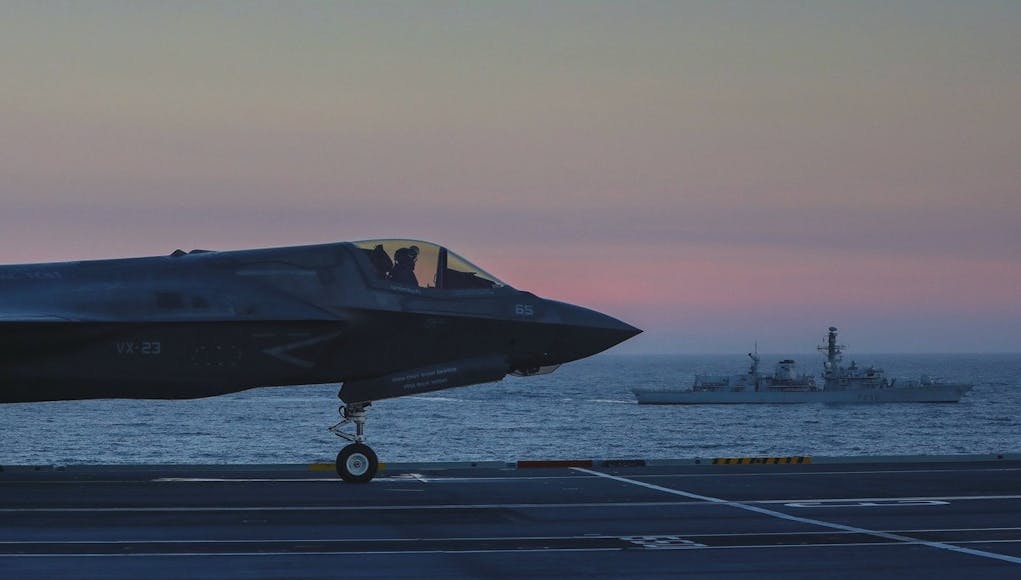
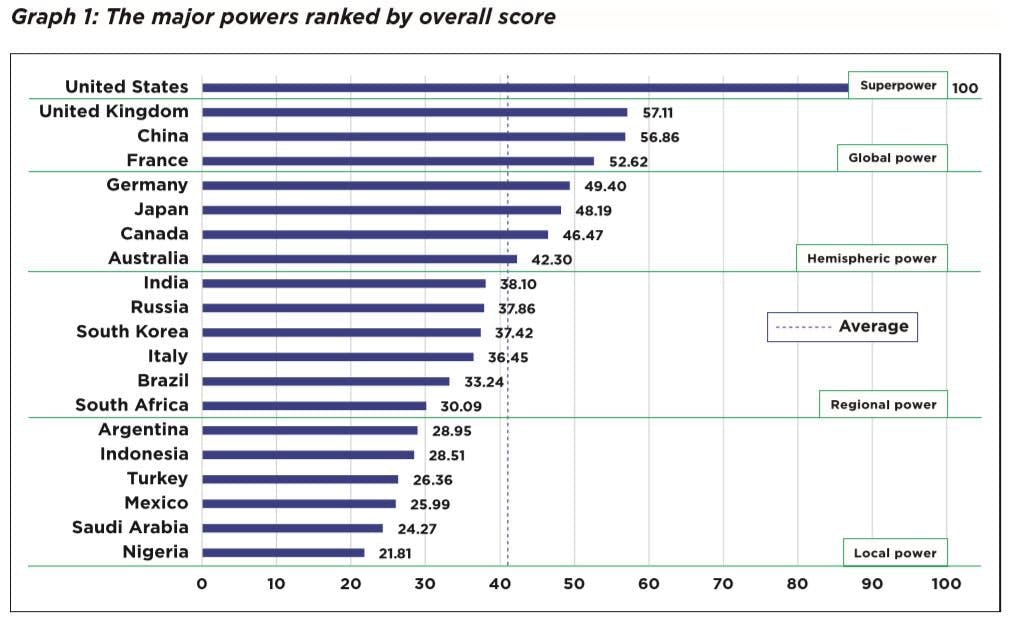
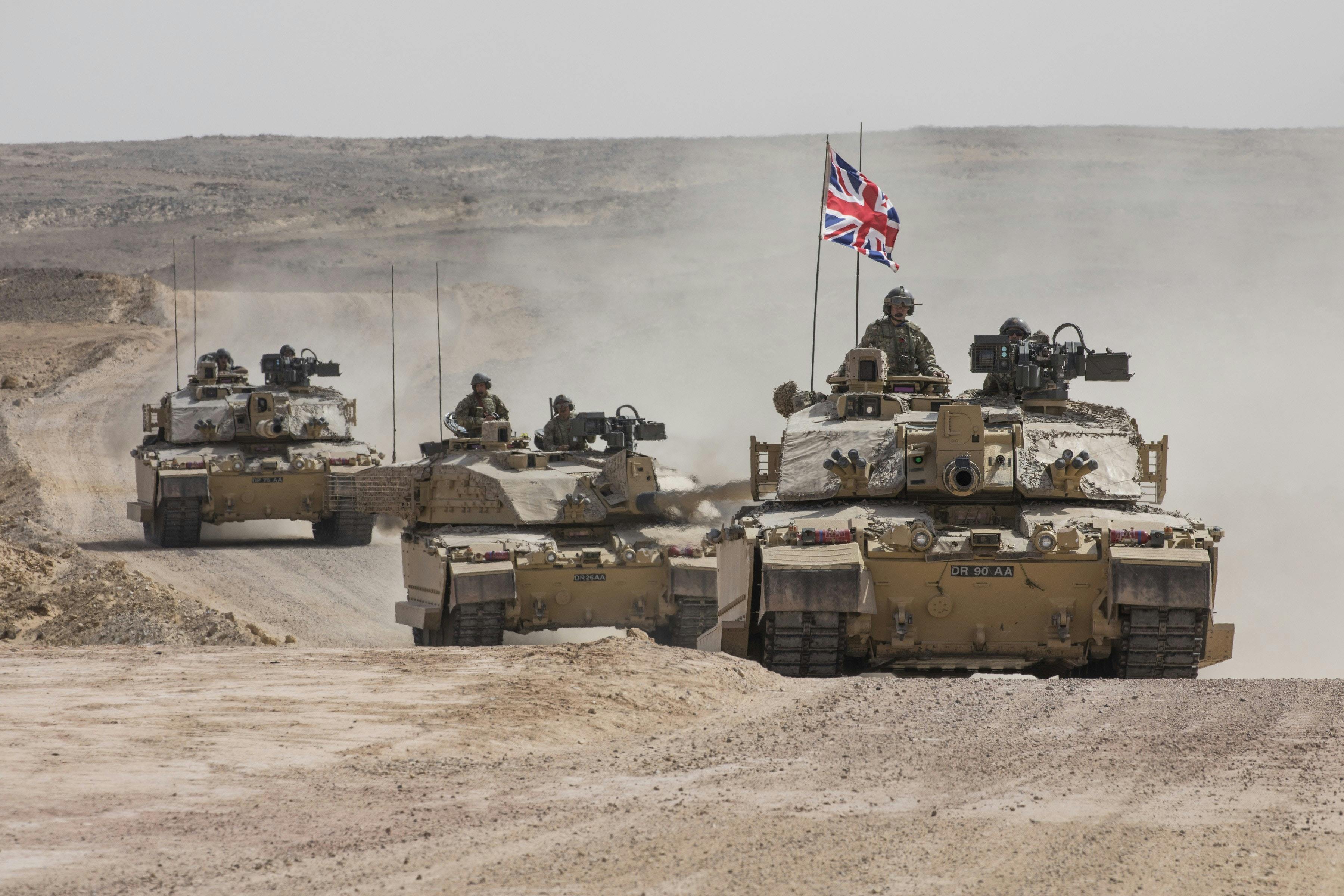
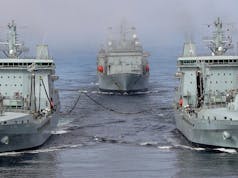



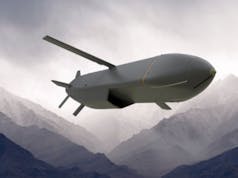


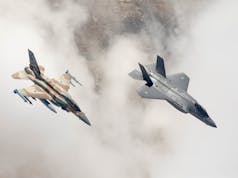



Its amazing what a couple of super carriers can do for prestige. That being said the UK has always operated heavily in the background of diplomacy with most Global initiatives from things like the G20, Rio Earth Summit and Common Reporting Standards all being UK lead.
Its sad that people in the UK refuse to acknowledge this success and often belittle the countries own capabilities. The UK’s greatest recent achievement is probably the EU but unfortunately its now walking away from it in no small part to the constant media hype of a non existent Franco German axis which controls the institution.
Martin, I agree with the first part of your statement, but not the second.
The UK built it’s reputation on the back of its old empire, morphed into the Commonwealth, resulting in wide spread respect and influence around the world.
We joined the Common Market in the 1970’s, when the UK was at its lowest point.
We had a crisis of identity and a low level of National prestige, with economic mismanagement across governments over the previous two decades had brought us to our knees.
One of the hangovers we still carry from this dark period, is an almost unique British ability to put ourselves down, we are in many ways our own worst enemy!
The ( hopefully) end to our EU membership, is an important historical turning point for the UK, it will see the UK returning to unfettered international trade and will in time increase our influence, as we rebuild international relationships.
The EU, on the other hand, is an increasingly insular, protective and restrictive block, with many very serous issues to face moving forward.
You seem to forget that many of the things you dislike about the EU were influenced by the UK. As a single country trying to do deals by ourselves, we are at a significant disadvantage. Yes we will get trade deals but they will likely be far less beneficial than the ones that the EU get with the same countries. We have shot ourselves in the foot and mostly because lots of people voted on entirely false information or simply because of a feeling inside. I also find that those either near or past retirement age don’t give two tosses about the future of those that still have to work.
This is the sad truth, the expansion of the EU to the east (probably it’s most successful element) the EU commission, common standards, European Human rights legislation, rules on state enterprise and the entire single market we’re all UK initiatives and all for the better of the continent and the country. The French managed to come up with the CAP and the Euro (both disasters). Scratching my head to think of a single initiative pioneered by Germany. Unfortunately in the never ending drone of the English media all the successful elements of the project were lost with simplist arguments like why does the European Parliament have to decide on the size of a bottle of olive oil etc etc.
One only has to look at the success and security provided to us by Latvia and Lithuania vs Belarus and Moldova to see what would have happened to our eastern flank without the EU. All for a mere £5 billion a year in net contributions.
Thing is Martin, the Euro is now the cornerstone of the EU, it’s a ticking time bomb, that simply cannot be overcome and sets the Federal European agenda in stone.
All EU members will eventually be compelled to join the Euro, a two speed EU isn’t working and it will, in my opinion, be forced on those that resist in the next 10 years.
Lee, I appreciate your point, but I see that negatively and uncertainty raising it’s head again.
View this an an exciting, vastly larger set of worldwide opportunities.
I am self employed, with a number of different arms to my business. Some areas will likely be impringed upon (at least initially) by Bexit, but securing the long term future of the UK as an independent Nation is a small price to pay.
I guess it depends how you view the world, as a European, or as a British citizen…
I am very much a British Citizen having been in the armed forces and getting very close to competing for our great country at sport. Most people I know will describe me as the most patriotic person they know. My love for my country leads me to want the best for it and the best for my children. This is best served by putting ourselves in the most beneficial position possible and that position is in the EU, not some rose tinted view of the old empire. As part of the EU we were still and Independent Nation and in fact had considerable power over EU policy. We drove most of the EU and we created many of its policies and yet somehow we do not like what we created… Unfortunately if this whole debacle does indeed turn out to be a bad thing (it probably will as my work will be severely affected) then I will likely be moving out of the country. I love this country very much but I need to look after my childrens futures and I am not going to put that at risk when the UK will have cut off it own head out of spite. My Dad is not happy about this as he will no longer see his grandchildren grow up and that makes me sad too, however he had a choice on how he voted and he voted to push me out of the country. What makes it worse is that he voted on totally false information that he still somehow refuses to accept.
Lee1. I commend and respect your Views and also respect your misgivings but I too Strive to provide a better life for my kids and that Is why I have spent Years Starting and Running my own successful Businesses. I do not rely on the State or It’s Benefit Umbrella, I do care passionately about my Country and worry constantly about the future when It comes to Immigration and Law and Order. A Referendum was Offered, The Majority chose to vote leave, Maybe you should respect that and maybe you should just put It behind you and make the most of It. As for leaving the Country well all I can say is that the Grass ain’t always Greener. Trust me, This Place Isn’t so bad really.
Bye Lee1
Close the door behind you
@barry white. I will and I will throw away my key.
I did until recently have doubts about the Franco German axis control of the E.U. That they have now unequivocally said they want the U.K.& BAE System’s to have no part in the latest Euro-Fighter ! Is “PROOF POSITIVE” that i myself & indeed the U.K. as a whole, was right that we should go it alone, or take up the U.S. offer of a second, this time 6th. generation joint strike Fighter. Quite frankly the best partnership for the job bar nun! And let’s not forget other first class Economic, Scientific & Military partners such as Canada, Japan, South Korea, Australia, New Zealand, South Africa, Taiwan and many other’s ! There will come a day when mainland Europe will be begging for military and humanitarian assistance from the U.K. the U.S. & others for the 3rd. time or in the case of the U.K. 4th. or 5th. If you include that little megalomaniac napoleon! I rest my case.
argentina…………. really???? all the articles i’ve read say their armed forces are in complete shambles
Yes, you are right!
The report above goes to great lengths explaining how these positions of Power were calculated. it’s not just about “Armed Forces”.
Argentina is classified as a local power which would be about right. Brazil is the Regional power for SA.
I would have to echo Captain Pug Wash’s view (ah ha me hearties) for those of old enough to remember!
I’m sorry Lee feels this way regarding the referendum, but we did have a vote and we do have a democratic mandate to push through the decision.
I fully respect your position Lee and I am sure you in turn respect the democracy you served to protect.
Despite our piss poor politicians totally shagging it up and the EU Politburo determined to punish us, I am sure, like Del boy said, ” this time next year, we will be millionaires Rodney” !
Well maybe not, but it will work out fine in the end.
Argentine naval forces suffer form so many problems its difficult to know where to start. There are no effective submarine forces, and only four major surface vessels. The air force is pitiful, with perhaps one squadron of attack aircraft, 8 or 9 fighters to intercept attacking aircraft. Weapons maintenance is poor, as well as morale. Chile has a stronger military than Argentina.
One factor for rating global (military) strength is the ability to build weapons indigenously. Shipbuilding is just about clinging on but land power in regards to MBT production has vanished. Aircraft manufacturing will only be as strong as the health of the order books? It is not too late for the UK Government to reaffirm its commitment, to support weapon manufacturing in the future, and rely less on foreign products, apart from joint programmes.
But we have a Land Industrial Strategy. Seen any evidence of it yet?
Interesting article, but what tangible benefits does this result in for the UK, that we would not have without it?
Basically it means we punch above our weight when it comes to influence in the world. It means we are able to help shape the world to our benefit to a degree that would be impossible otherwise.
Sorry Lee, I did understand the article. I was simply musing what tangible benefits this gave to our country.
The paper is more an assessment of the current geopolitical landscape, rather than a capability in and of itself.
Direct benefits from the assessment? The UK’s position is more tangible in communication. It is citable.
The benefits of the UK’s position? Look at the tangible manifestations of influence, the T26 orders from Australia, probable from Canada and the touted partners for Tempest. Japan’s position on UK joining TTP. There are others.
John.: In one word, influence.
Interesting article.
A fresh coat of paint for HMS Argyll would be nice if we can afford it!
“A British military base on the South China Sea is not a far-fetched idea”
https://edition.cnn.com/2019/01/03/asia/britain-military-bases-asia-intl/index.html
It’s not far fetched primarily because we already have two bases in the South China Sea. That being said wasting money on bases in non sovereign territories is a bad idea, would Singapore or Brunei every allow us to use those facilities unless they themselves were directly involved in the action. If they were involved we can just use their bases. Bahrain and Oman are paying for British facilities and we also have Diego Garcia which is sovereign territory. Facilities are already in Singapore and Brunei so not sure what else we gain from bases there. If they were willing to allow construction of a sovereign UK airfield it might be worth it but it would also be expensive and neither Singapore, Malaysia or Brunei will pay for a UK base like gulf states.
Its really interesting, I think how they are looking at national resolve shows a definite potential for a bias to western liberal democracies. Totalitarian states can and have harnessed far greater levels of national resolve than I think this methodology gives them credit. As examples Victorian Britian was in all but name a totalitarian state but the national resolve was probably greater than any seen in history (Victorian Britian had a multi generations mission that we still feel and understand now), inter war Germany one of the most extreme examples of a totalitarian state had such national resolve it walked to utter destruction…….
Other that that seems all very sensible to me.
Liberal democracies have a much greater ability to affect foreign nations in a positive way, however. Being feared is not necessarily a good thing in international relations.
Fascinating article. It’s good for us all to be reminded that power and influence are not just a question of ‘how many divisions do they have’ to quote Mr Joseph Stalin.
Must be painful reading for some.
Anyone with the slightest interest in our nation and its world standing knows the UK has these cultural, economic, military, diplomatic, and other links world wide that make it somebody.
It’s often overlooked but the UK has had some Influence In all but 20 or so Country’s that have ever Existed. Not just the Largest Empire by far the World has ever known. What’s more, It managed It with relative ease and small Forces. Proof that Power Isn’t just about Force.
We should be really Proud of that not Apologetic.
I AM Capn.
But under PC you’re not supposed to be.
It must be fought against.
Lol, I like you, You make me feel that I’m not alone in my thinking after all. XXX. Fancy a Beer ?
Lol defo. I often wonder if we should all organise a group meet up of like-minded on here.
CPW..You mean like the mobilization of 400,000 troops to put down some Boer farmers. Not exactly small assets and we certainly lacked the moral high-ground with world opinion against us. The past is very rosy if you select only the facts that appeal to the ego.
As you say, Selecting the Facts Is Easy whichever way you view It. you could say that the British Empire brought Stability to many parts of the World that are now so unstable. That List Is very long. You could Applaud Britain for It’s stunning Achievements in Science, Health, Industry and Business. You could also Praise Britain for standing up against Hitler and Losing It’s Empire in the process whilst running up Unbelievable levels of Debt enabling a Free Europe to even Exist.
Yes CPW, as a history teacher I reflect on the benefits and downsides of Empire in my lectures. One of my favourite themes is ‘who got what from WW2’. My students are always astounded that, although on the winning side, Britain emerged from war virtually bankrupt. Whilst the good old USA emerged from the war twice as rich as it was when the conflict started. Nice trick…I leave the students the task of working out how that happened. Arguably, if there is any justification for war, then Britain’s stand against the Nazi tyranny was the most glorious episode in our history. Trouble is, the moral high ground doesn’t pay much and is soon forgotten about. We seem to have garnered more respect from duffing up less developed nations. In a previous career in electronic navigation, I was amazed by how our star had risen in the middle an far east post Falklands!
Half of the world’s wealth apparently ‘sits’ in British and British overseas territories’ banks………..
We need more gold.
We have relatively small reserves compared to many other Country’s, not just because we Gave It all away but because we don’t see It as a Priority like Others. The Gold price actually shot up at the time of the Brexit vote, I was paying @£730 for a 1oz Britannia but It’ll cost you @ £1050 now. I am totally amazed at just how much of an Influence the British have over the Price of Gold especially when you see other Major Global events having little or no effect whatsoever.
This again confirms the Power We still have.
The UK has 310 tonnes of gold. The Italians and French about 2450 tonnes-ish. And Germany about 3400 tonnes-ish……….
It is a real weakness. Luckily we are outside the Euro. There will come a time when the EU members will have to surrender their gold; that will be one of the ‘crunch’ moments. Gold gives options. Italian could start printing Lira if she wanted back by her reserves. I wonder about those conspiracy theories I read about Trump wanting to dump the Fed and return to a gold back Dollar. The US has over 8000 tonnes of gold.
I said it is a weakness. I wonder where we would be if we had a couple of thousand tonnes of gold, fewer of our companies were not owned by foreigners, and if our engineering base was as it was in the mid-1950s…….
During the Age of Empires the Spanish concentrated on accumulating gold, while the UK and lesser extant , Netherlands, concentrated on commerce. By 1900, Spain was done for, while the UK was the premier power. That it wasted its wealth in WW1 is another matter.
Sorry, On one now. 20 years back, before the Euro, We all used to go to Europe and bring back Van Loads of Booze and Fuel Etc, Why ?, because It was all so bloody Cheap. It’s not anymore though Is It? I watched In Bemusement the way the Euro totally Shafted the Euro Citizens In every way. You have to be Blind and Brain dead not to have noticed.
Thank God we kept the £.
Terribly sorry. All the above is wrong. It’s very simple you see. It’s the ACCENT! 😀
Ask pretty much any single (or not single ) young (or older) American. They go loose kneed at the accent…
:D:D:D
Cheer!
Unless it’s of course my friend Keith’s East Ender Cockney screech of which he is inordinately proud (gets him plenty of free drinks though…). Especially when he starts that rhyming routine…
Cheers!
D,D,D,D or Dum, Dum, Dum, Dum and EastEnders, Apparently they are introducing a Gay bar to the show, to reflect the true Diversity of London. well what can I say?
I have read some bo****s on this forum but this takes the proverbial biscuit. What a lot of horse manure that is! Even if we brought every piece of hardware out of mothballs we could field two armoured divisions at best. One aircraft carrier with two F35’s and 7 fast jet squadrons. This kind of gobshite statement only makes the politicians feel even more smug when the reality is really so much different.
Strike brigades which will be slaughtered if they face a dozen Russian MBT`s.
Warships with pop guns and no anti-surface REAL capability. Troops living in slum married quarters and we wonder why we cannot even recruit our thick as pig shit kids to join up as mere fodder. Perhaps they’re not as dumb after all. 6th largest economy? 4th largest defence budget? All utter boll**** at the end of the day.
Tory or Labour, gutless wonders. The Mod is stuffed to the gunwales with Admirals, Brigadiers, air vice marshalls and the like. One for each ship, tank and plane.
God help us in a real shooting war. We wouldnt last 5 minutes. So pissed off with this crap.
Very subjective analysis of the UK’ military, economic and dimplomatic capability there, well done.
Yeah…but I have a sneaking feeling that Bill is not far off the mark. An excess of hubris methinks?
I take it you dont agree with the artical Bill
Meanwhile!
When are we sending QE to the south China sea?
“China closer to equipping warships with electromagnetic railguns, state media reports”
https://edition.cnn.com/2019/01/04/asia/china-pla-navy-railgun-intl/index.html
We need to get moving with the Type 26 currently due in service by 2027???
Some new anti-ship missiles like the Naval Strike Missile wouldn’t go amiss either!
“China could be developing a carrier-borne variant of FC-31 fighter aircraft”
https://www.janes.com/article/85512/china-could-be-developing-carrier-borne-variant-of-fc-31-fighter-aircraft
Bill.
Agree on military hardware by numbers.
Remember the article covers other things too.
More a reality check Martin. We cannot keep kidding ourselves over our parlous state. We have more than twice as many trained pilots for the F35 than we have planes. When do they get to fly them? Some of these are ab initio trained twiddling their thumbs at present. Easyjet beckons.
We are a major partner but do not appear to be first in the queue for the hardware. Funny that! Four frontline squadrons by 2025? Ridiculous!!
Bill , you are not alone here with your anger and frustration at the way the Armed forces have been treated over the last 30 years.
Cut after cut has caused capability to fall to dangerously low levels.
The only slight glimmer of hope are signs that things have now hit bottom and numbers of personal and equipment might ‘might’ be starting to very slowly improve.
You guys are smoking some good stuff if you think the UK is ahead of China. Stay fragile white boys.
I am an ex Rhodesian army officer who studies modern military doctrine. What Britain has in abundance is a military pedigree not matched by any other country except for the USA. The Russians have lost its professional Officer Corp and has no strategic reserves to sustain any major military campaign – China has not been battle tested since its bruising battles with the Russians in the 60’s and unable to formulate a battle doctrine that can compete against a USA lead Asian alliance. So let’s give the UK some vote of confidence that when the bullets start flying it will stand-up and fight. Lastly you have the SAS who will do what has to do
Nowhere in the report is there any rationale for the weighting of factors. This is just some guy’s opinion about which aspects make a country “powerful”.
I think the report would be better labelled ‘influence’ rather than suggesting ‘power’.. Especially if you consider influencing in term of generating a reaction… Rather than a working with
I assume the stats, were based on abilty to positively influence numbers of other countries rather than influence over absolute population numbers or power in form of Abilty to cause a reaction (look over your shoulder)
China already excerpts massive positive influence over much of the balance of Asia and sub sahara Africa countries, and populations. The rest of the world is looking over its shoulders at what China does or may do. UK comes, nowhere close to that.
Reads like a report to keep some in HNG feeling smug
Pete
I appreciate that the article was not comprehensively about the military but can we honestly say that our standing and influence in world matters really counts anymore?
We are humiliated in Europe because we have nobody of statesmanlike quality. Brexit has been a rudderless ship foundering towards the rocks..But we have to trust the politicians to get the best deal possible for this country. What we have all seen and heard to date does not augur well. Do we actually know what that is? It’s what we have concede that is the concern. Goodbye court of HR, Brussels per se, control of borders, fishing protected and Europe kept out, and of course free to trade with whoever we choose to. For £39bn this would be a good day at the office.
There’s talk of yet another postponement of the parliamentary vote on BREXIT again.
Looks like the govenments ‘closing your eyes, counting to 10 and hoping it all goes away’ policy isn’t going to work this year either.
I would suggest they add to this, putting their fingers in their ears and chanting ‘I’m not listening’ over and over, to the BREXT plan….
As a leading report writer on the EU for some 23 years, I must say a lot of what I read is wrong!. The EU is and was a massive trap designed to give Germany what it has always wanted, total control of Europe and its people, that is why we had two world wars to try and stop Germany. We must as a nation get out of the EU or as a country England or some say the UK, will be part of the North of France under full EU rule.
That said once we are “God Willing” out of the EU trap, and back being our own country we will be great again, but not with out pain sadly. You see the far left brigade liberals that want all liberal idea’s to be at the front of UK thinking, will destroy the very armed forces we require. So many high ranking officers think that having women on the front line is so damaging, we must as a nation make sure our forces remain the best, the best trained, the highest fighting fitness.
Sadly the left wing liberals, in the armed forces, now say woman can have lighter training, lighter packs, this can not be! if a woman wants to be in the forces, and the male officer has to be able to lift and run and march with a 100 lb pack, then the woman must be able to do it as well, this must sound hard, but all armed force offices I have talked to say the same the armed forces, training and its whole ideals must go back to the 1950/60 style , of smartness, hard training, and women in only a supporting role.
To save the high standards, we must have to take this Great Country into the 2020/40s.
Thank you,
Prof: David Younge
Wow, what utter CRAP! England is more powerful than Russia and China? What year is this 1905, people come up with these silly measures by suggesting that other countries listening to your music means you’re powerful. As much as it is pleasing to a bunch of patriots to think their country is number two but really is just plucked out of think air.
The UK & British government and security should explain what they are doing so other government agencies And country’s understand because the UK & USA have a bad habit of making problems that start wars or keep a war going over completely unnecessary problems that shouldn’t even happen in the first place